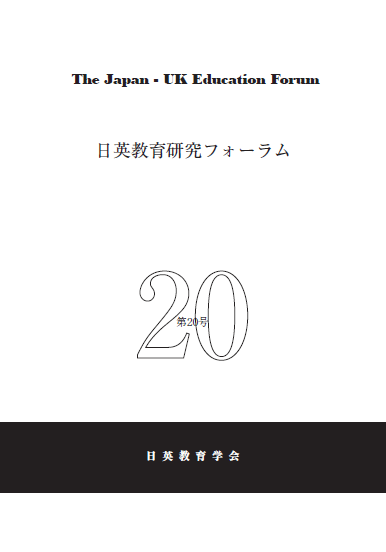Volume 23
Displaying 1-11 of 11 articles from this issue
- |<
- <
- 1
- >
- >|
-
2019 Volume 23 Pages 7-21
Published: 2019
Released on J-STAGE: January 04, 2020
Download PDF (577K) -
2019 Volume 23 Pages 22-36
Published: 2019
Released on J-STAGE: January 04, 2020
Download PDF (768K) -
2019 Volume 23 Pages 37-42
Published: 2019
Released on J-STAGE: January 04, 2020
Download PDF (698K) -
2019 Volume 23 Pages 43-58
Published: 2019
Released on J-STAGE: January 04, 2020
Download PDF (669K) -
2019 Volume 23 Pages 59-60
Published: 2019
Released on J-STAGE: January 04, 2020
Download PDF (512K) -
2019 Volume 23 Pages 63-77
Published: 2019
Released on J-STAGE: January 04, 2020
Download PDF (805K) -
2019 Volume 23 Pages 79-86
Published: 2019
Released on J-STAGE: January 04, 2020
Download PDF (764K) -
2019 Volume 23 Pages 89-103
Published: 2019
Released on J-STAGE: January 04, 2020
Download PDF (778K) -
2019 Volume 23 Pages 105-111
Published: 2019
Released on J-STAGE: January 04, 2020
Download PDF (692K) -
2019 Volume 23 Pages 113-116
Published: 2019
Released on J-STAGE: January 04, 2020
Download PDF (564K) -
2019 Volume 23 Pages 117-119
Published: 2019
Released on J-STAGE: January 04, 2020
Download PDF (606K)
- |<
- <
- 1
- >
- >|
